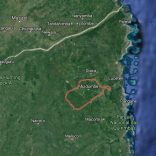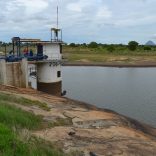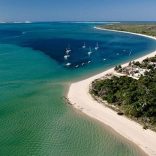Mozambique: Public holiday granted for Family Day
Hidden debts: Senior official has no idea whether Proindicus, Ematum or MAM were ever viable – AIM report

File photo: Lusa
A senior official in Mozambique’s Security and Intelligence Service (SISE) told the Maputo City Court on Thursday that, although he was involved in the creation of all three security-linked companies, Proindicus, Ematum (Mozambique Tuna Company) and MAM (Mozambique Asset Management) at the heart of the “hidden debts” scandal, he had no say in negotiating their contracts, and had no idea whether they were ever viable.
Raufo Ira had been Executive Director of the SISE Social Services, which was the majority shareholder in the company GIPS. Through GIPS, SISE dominated Proindicus, Ematum and MAM. GIPS owned 98 per cent of MAM, 50 per cent of Proindicus and 33 percent of Ematum.
Despite this position, GIPS had no say in how the companies were run. Ira made it clear that decisions were taken by the then head of SISE economic intelligence, Antonio do Rosario, who, along with 18 others, is currently on trial for his role in the “hidden debts”.
The first of the three companies, Proindicus, was set up as the result of a meeting at the Defence Ministry on 21 December 2012. Ira said he knew nothing about Proindicus before he was summoned to that meeting. He had no role in designing the company, or in its viability study. Nonetheless, he became the first chairperson of Proindicus, a post he held for about two months.
“Did you do any work to conclude that Proindicus was viable?”, asked prosecutor Sheila Marrengula.
“No”, replied Ira.
The following month, on 18 January 2013, Ira signed the supply contract between Proindicus and the Abu Dhabi-based group, Privinvest. He had not read the contract before the day it was signed. He recalled the contract was in English, and he asked for a copy in Mozambique’s official language, Portuguese.
Setting up Proindicus was not decided at GIPS general meeting, and indeed a general meeting was not held until February 2013, Nonetheless, Ira was certain that he was “respecting the will of the shareholders”.
Asked about the grossly inflated prices that Privinvest had charged Proindicus for its patrol vessels and other assets, Ira said he know nothing about this, since he had not participated in the negotiations over the supply or finance contracts.
The contract with Privinvest – which he had signed – did not give an itemised breakdown of the goods to be acquired, and Ira admitted that there should have been a comparison between the prices charged by Privinvest, and the world market price
Ira did not know whether anybody had carried out such a comparison at the time. In early 2017, however, independent auditors from the company Kroll did make the comparisons and found that, taking the assets of all three companies into account, Privinvest had over-invoiced Mozambique by more than 700 million dollars.
As for Ematum, which was set up on 2 August 2013, there was no discussion at GIPS about taking a 33 per cent share in the new company. “We received higher orders”, said Ira. Those orders came from Rosario, but were later confirmed by the SISE General Director, Gregorio Leao.
It was also Rosario who told Ira that Ematum had a defence and security component. There is nothing in the public deed setting up Ematum that mentions defence and security – Ira simply took Rosario’s word for it. “It’s what Rosario told me. He didn’t give many details”, he said. “I didn’t know whether it was true or not”.
As for MAM, the decision that GIPS should hold 98 per cent of the shares was also taken “on higher orders”, given to Ira by Rosario. As with Proindicus, so with Ematum and MAM – despite his senior position, Ira had no input into the viability studies.
MAM was supposed to operate shipyards in Maputo and Pemba, which would be used primarily to repair and maintain Proindicus and Ematum boats, as well as other vessels using the Mozambique Channel that needed assistance.
MAM’s revenue was negligible, admitted Ira. The main problem, he said, was finding room in Maputo and Pemba ports where new shipyards could be set up. Thus MAM had taken a loan for 535 million dollars from the Russian bank VTB, covered by a state guarantee signed by the then Finance Minister Manuel Chang, without even knowing where it would install its shipyards.
Eventually, space was found in Maputo to set up a company known simply as “Maputo Shipyard”. Ira said it currently employs 70 people and is generating some revenue. But no new shipyard appeared in Pemba. Instead some work was done, based on the existing Pemba base, owned by the Mozambican navy. MAM itself no longer exists, added Ira.












Leave a Reply
Be the First to Comment!
You must be logged in to post a comment.
You must be logged in to post a comment.